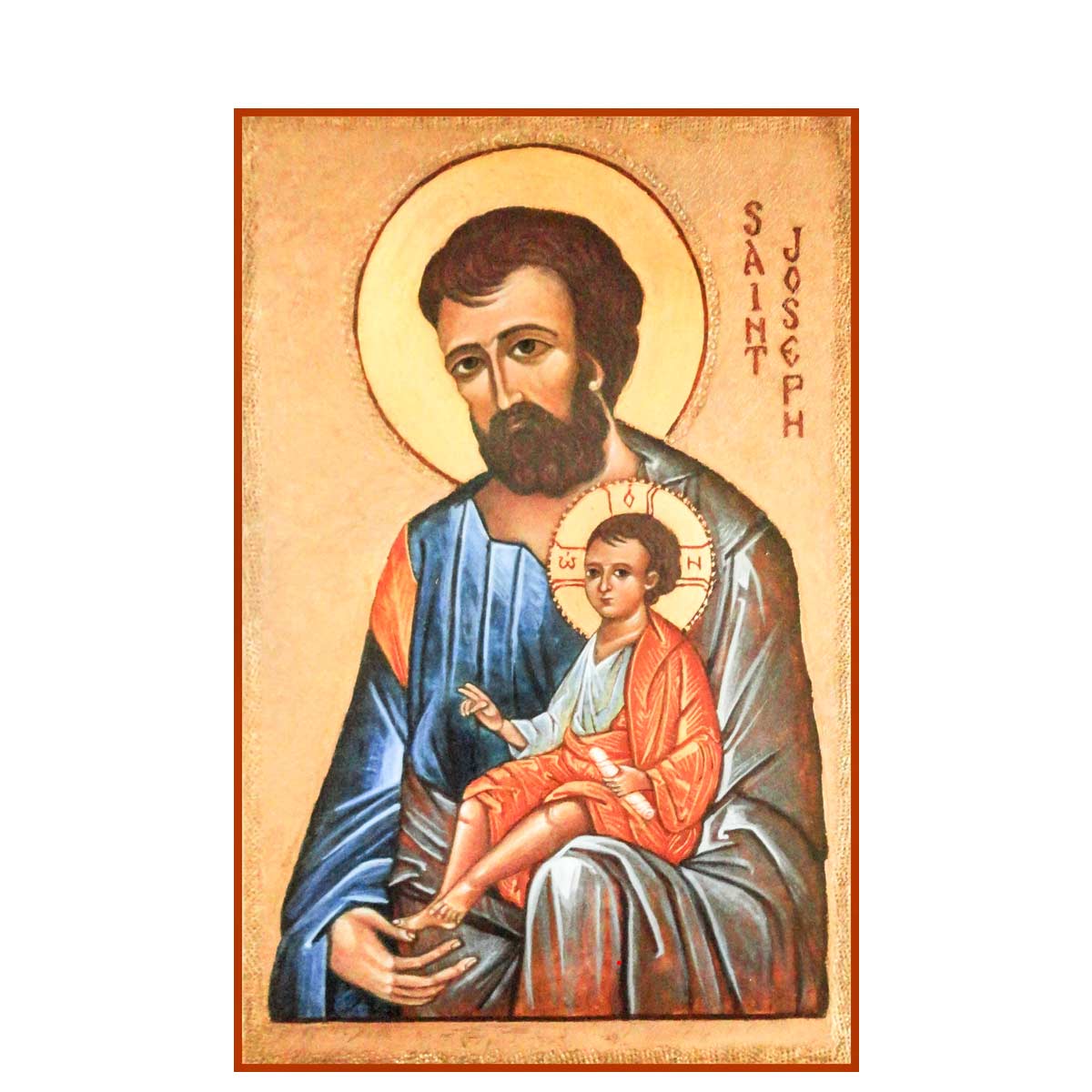This content has been archived. It may no longer be relevant
One night, many years ago, during a particularly hard time in his family, Michael was up with his baby who would not stop screaming. There were so many problems; this was the last straw.
As time went one, as he kept holding her and rocking her, he was feeling exhausted and utterly miserable. Then slowly he started thinking ….
***
The father thinks about Joseph and Mary forced in the final days of pregnancy to journey to Bethlehem. Then the birth, their child delivered into the agony of the world, in a stable that was no Christmas creche, but a place of urine and manure, straw and cold, the last quiet refuge in the midst of chaos.
The scene was not romantically rustic but utterly poor. And this was only the beginning of their troubles.
The angel tells Joseph to take Mary and the baby and flee into Egypt, and so he takes them and sets off into the unknown.
The father wonders if Joseph knew what was happening behind him in Bethlehem, a city bathed in the blood of children.
Did he camp at night somewhere in the desert and turn his thoughts to the events happening all around him and through him? Did he fear, did he have a moment’s doubt?
Did he remember the warning of the angel and wonder if it was “just a dream” and he a fool, a dreamer?
Did he tremble at the seeming madness of this act, to flee one’s own people and nation to go willingly over into exile, into Egypt, the ancient site of Israel’s bondage? Did he remember that Abraham before him was called to leave his country, and obeyed, though he did not understand?
Was Joseph given a glimpse of the offspring, more countless than the stars of the sky (Gen 22:17), who would be given to him through Jesus, given through his act of obedience, though he too did not understand?
The father wonders if Joseph sat by a dung-fire in the darkness and cold, thinking about life as his wife and child slept beside him. Did he search the sky for the great star asking if it would ever come again?
Perhaps Joseph was blessed with perfect peace and certainty. Or possibly, like the rest of mankind, he was left to feel burning within his bones the solitude and insecurity of being human.
Did he feel his weakness, the weight of his impossible task to shelter and shepherd this mysterious Child, a child already hated and feared by the world? Did Joseph weep? Did he cry out into the silent face of the desert or lift his eyes to the night sky in search of signs of hope? Did he beg for words of reassurance to come … and did they come?
Did they come in a language or song he could hear in the depths of his being, that core where the child is sleeping, laughing, and crying out within us? Did he blow a few tentative notes from a flute for consolation?
Did he chant the old poetry of the psalms, singing, Come quickly, God! My helper, my savior, Yahweh, come without delay! (Ps 38:22)
Did he then look down at the sleeping Child and begin to understand that this small fragile Son might be indeed God’s answer to him, a Word who in his weakness and obedience would be stronger than all the accumulated fear and hatred that would ever be in men’s hearts.
***
Strangely, the father’s heart is now still and empty. He is content to carry his beloved little girl all through the night if she needs him. Words begin to flow through his mind, unbidden, from somewhere beyond himself, whispering, “It is I. It is I whom you are washing when you change her diaper. It is I, the Christ Child.”
He hears the words in that deep part of himself and he, the child, is consoled. God is not absent, but pressing him in silence against His breast until his own cries are stilled.
Within his arms lies a child as pure as an angel. And something more than an angel, for she is an image of the unseen God, a strong and delicious word, never before seen, never to be repeated.
He lifts her now, carries her to the crib. She sighs and turns, arranges her own body. He lays the quilt gently over her, then pauses to pray in words which are soundless. He sees that outside the window snow continues to fill up the universe like God’s mercy poured out over the world.
As he closes the door her bird-voice sings softly, “Night, night, Daddy.” As fragile as a stable, as poor as Nazareth.
The father lays his body down in bed, then, from the material of his little sufferings, he weaves a word of thanks.
Excerpted from the article “Joseph and a Father’s Questions,” Restoration, May 1984
Michael O’Brien, our long-time friend and neighbor, is a professional writer and artist. His books, some of them best-selling novels in the Catholic world, can be obtained from Ignatius and Justin Press.





